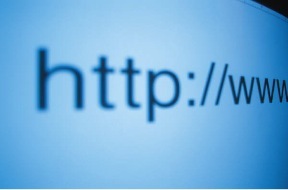What Should Really Concern Us About Syria’s New Media Law


Analysis
In Syria, the internet has become an essential outlet for activists and intellectuals who call for change, as might be expected in a country with repressive laws and a state-controlled media.
But the internet has become even more than that. It is essentially the only forum for anyone to challenge official red lines, the only choice for debate, dialogue, networking and the only arena where the country’s human rights and democratic movements can express themselves.
All small margins of freedom which might have once briefly existed in the traditional media have vanished. It no longer provides any alternative.
The authority is not blind to that reality. Dozens of websites have been blocked because they do not follow the official line, and social networking sites like Facebook are considered harmful to national security, because they allow discussion, virtual meetings and encourage the public to express themselves on many issues.
Comments and public participation in other websites like blogs or debate forums also come under tough censorship. The regime knows the potential of the cyber world; social movements like the April protests in Egypt or last year’s Iranian Green Movement show how powerful the internet and social media can become.
Could the fear of witnessing similar events in Syria be an important reason behind the determination of the Syrian government to issue a special law for the electronic media?
So far, most experts consider the draft of the new law repressive and fear it will match the law for printed media in its efforts to monitor and control any local media. To predict the effect it will have, a few issues should be taken into consideration.
Arrests and trials occur even without a special law
All the websites run by the various groups of the Syrian democratic movement are already blocked in Syria. They operate on servers located outside the country, and none of them makes any profit from the advertising market.
The absence of a special law for the electronic media has not prevented intellectuals, writers, bloggers and journalists being arrested and tried, through use of the current penal code.
On the other hand, the pro-government websites have the support and blessing of the security agencies. Their “independence” stops at the red lines drawn by officials: never criticise the political system or publish any news related to human rights activists or the opposition movement.
The websites also have to meet certain expectations, such as support for official Syrian foreign policy, which might entail the readiness to open a media war against any state or party that is at odds with the Syrian regime (examples from the past include Saudi Arabia, Egypt and the March 14 movement in Lebanon). The government also uses such websites to “leak” information on security-related issues, as for example in the case of the 19-year old Syrian blogger Tal al-Mallhohi who was arrested and held incommunicado for several months. Several pro-government websites accused her of spying and defamation even before she was officially charged and her case referred to the Supreme State Security Court, SSSC.
This does not mean that these websites do not play an important role in covering certain local news which the traditional printed press ignores. But they are controlled by something stronger than any law, since in Syria nobody can establish a news website, hire journalists and get paid advertising without having an agreement with the security services.
A step towards even more control
The Syrian electronic media scene is already strongly controlled, and so all the new law would do would be to legitimise this control. Obviously, it is another step towards more control of the Syrian media but it does not look likely that the new law will lead to any radical changes in Syria’s internet scene.
More important than just opposing the new draft of the media law is to insist on a fair law which protects rights instead of increasing restrictions – and for this law to be applied with integrity by an independent judiciary without interference from the security forces.
Otherwise it will be just another law that becomes just another tool for the security apparatus to impose its will and vision on Syrian society, including the media.
More and more Syrians are finding their way to the internet looking for information or ways of expressing themselves. Compared to many neighbouring countries, however, internet penetration is still very limited and controlled. And that is the case even without any law on electronic media.
So instead of worrying about the new law, it might be more fruitful to focus on how the democratic and independent movement, which has used the internet to reach out and communicate over the past years, has gained this space: not simply because of a local struggle – and certainly not as a noble deed by the authorities – but because of a wider communication revolution.
